Artist: Nile
Genre: “Egyptian” Brutal/Technical Death Metal
Length: 56:39
Release Date: November 3rd, 2009
Label: Nuclear Blast
Producer: Neil Kernon, Erik Rutan

…and so I entered that tomb of blackened pitch, a hollow artifact of a lost age buried deep beneath the sands of time. My hands grip the sarcophagus that hath contain the powers of which I seek. Trembling, gripped by a nameless fear, I slowly lift the obsidian stone, my eyes both disturbed by and beckoned to the unseen horrors within. Slowly, shadow gives way to the light of Ra, and in so doing ushers forth sounds and images beyond this world, horrors once immersed only within the burning pits of the Duat. I draw nearer, draped in terror yet unable to escape my own temptations. The sounds grow louder, and more feverish, until at last the barriers that withheld this ancient power shatter and unleash a sonic scream unlike anything imaginable to mortals, man or beast.
Within this brewing wrath hath reside the might of a thousand sandstorms, the militaristic might of a million pharaohs, the infinite flames of a million demons spawned of Apep himself. Both gods and men, past and future, cower before it as it destroys all who dare stand before it. Louder it grows, more frenzied, and from within I hear a single isolated howl, a demon’s voice that exclaims, “KAFIR!”. I look upon the hands that unearthed this ravenous pestilence and, amidst the chaos, ask myself, “What hast thou done?”
I already knew the answer. I hath unleashed Nile upon the world.
* * *
If you’re a regular to the world of extreme, you’re probably more than familiar with the sublime death metal innovator that is Nile. For those unaware, Nile is a brutal death metal band led by songwriter/vocalist/guitarist/musical genius Karl Sanders, revolving almost entirely around Egyptian and other Mediterranean cultures. To this end, the riffs are written in a number of various Middle Eastern scales, modes and instruments, and feature lyrics inspired by Egyptian mythology and history, or even excerpted directly from ancient texts (or those of famous horror-writer H.P. Lovecraft). It’s a formula that has shaken the death metal world time and time again, establishing Nile as leaders in metal songwriting and atmosphere. Unfortunately, many fans (of which I am one, in case you hadn’t quick picked up on the subtle hints yet) were disappointed in their 2007 release Ithyphallic. Here, much of atmosphere and interesting instrumentation were gone in favor of straightforward thrashing, capped off by terrible production values and an album title that gave way to more than a few penis jokes. I remained convinced, in spite of doubts dwelling deep in the back of my head, that Ithyphallic was the one-time product of a lack of inspiration, and that the inevitable successor would restore the band to their former glory. I was right.
I just didn’t know how right I was.
Those Whom the Gods Detest is an absolutely astounding piece of death metal gold. It’s the product of a trio renewed in their convictions and driven by their passion to create music that is as overwhelming as it is enthralling. And that seems odd, because in a manner of speaking, TWTGD doesn’t strongly alter the classic Nile formula in any way. So what exactly has improved enough for me to name this the best Nile album in years? Well…pretty much everything.
For starters, the production values are the best Nile has ever had. Much hyperbole was made on the toiling of the producers to craft the best Nile sound yet for this album, and there is no doubt that they delivered. Sure, their previous works achieved a dark, muddy sound that matched the music note for note, but something, be it the guitars on Black Seeds of Vengeance or the vocals on In Their Darkened Shrines, always seemed to get buried. TWTGD performs a miracle by retaining that same grittiness as the previous albums while simultaneously making every performer come in clear, crisp, and above all, powerful.
It’s also notable that this is probably the most technically demanding Nile album yet…which is saying an awful lot. Sanders and Dallas Toler-Wade are, as always, demons behind the six-strings; the rapid-fire guitar pickings and haunting harmonics in “Permitting the Noble Dead to Descend to the Underworld” have to be heard to be believed. The duality between their vocals works better than it did on Ithyphallic as well, even if Toler-Wades straightforward bellows receive more of the spotlight than Snader’s otherworldly growls on this venture. If any one member of the trio deserves props for his instrumental performance on this album, however, it’s George Kollias, the drummer. He’s quickly making a name for himself as one of the best drummers in the modern metal world today, and TWTGD is the best proof of that. His spastic drum fills are always entertaining and expertly precise, but he won’t truly blow your mind until you hear him pounding away at the double-bass at up to 300 BPMs (!!!).
Of course, Nile has always been less about the technical aspects of their music (at least compared to other similar bands) and more about that classic atmosphere, the ability of their music to sweep you away thousands of years into the past and transport you into the world of ancient Egypt. Where the previous album managed to fail in that regard for the first time, TWTGD brings it roaring back. It’s not exactly dripping with the shadowy atmosphere and unpredictability of ITDS, but it always incorporates enough unique ideas into each song to make them all distinctive and memorable in that old, “Sanders” way. The indescribable riffs that open “Utterances of the Crawling Dead”, for example, seem to be perfectly emblematic of the howls of spirits from beyond the grave. The title track opens with whispered ritualistic chanting alongside the playing of a sitar-like instrument, luring the listener into a false sense of security…before leaping for the throat in what quickly becomes one of Nile most vicious, most evil “epic” tracks (clocking at around eight-minutes, yet remaining gripping to the very end). Instead of opting for a couple of slower, doom-based riff monsters, the band cleverly inserts some doom sections into several of the faster tracks, with the only “4th Arra of Dagon” serving as the slow, plodding giant of the album. There’s even a non-metal instrumental very much akin to Karl Sander’s solo projects, and it’s probably one of the better ones to appear on a Nile album, featuring a number of unique instruments and creepy, chanting vocals to sell the ambiance.
If there’s any one track that serves as a representative for Nile as a whole, let alone the album, it is the opener, "Kafir!" (the subject of my little Lovecraftian-esque fiction at the start of this review). Over the course of roughly six minutes, it incorporates both the fast-flying fury and the slow, crushing madness that Nile is known for. Most notably, before the amazing solo and as the song closes, "Kafir!" incorporates beautifully sung Islamic prayer; the theme of song being the nature of Islam itself. Nile’s lyrics have always been deep and insightful, not to mention a learning experience worthy of the Discovery Channel (you know you’re good at song writing when you make a song about a Hittite ritual performed with dog crap seem interesting…no, really), but it’s songs like "Kafir!" that provide a social relevance quite isolated to this album in particular. The title would suggest a clear stand against religion and deities as a whole, and that context is certainly implied, but in a subtle way; rather than outright state their disdain for established faiths, as many more bone-headed death metal bands may attempt, they use the examples of the ancient past to make their case. It’s clever stuff, to be sure, and the inclusion of liner notes explaining the history behind the music will help the people who, unlike Sanders, don’t have encyclopedic knowledge of Egyptian religious reforms...or don't know who the hell Ra or Osiris are.
As far as flaws go, they are fairly self-explanatory to anyone familiar with Nile. As I stated, the overall formula for the music has not changed much, but has only improved from that basis; if you didn’t like the band’s bizarre fusions to begin with, there’s little hope for you here. And of course, brutal death has always proven to be a tough sell outside of the underground, so the tone and subtleties I’ve outlined here may be completely lost on the people who can’t stand the sound of a good growl or double-bass section. That being said, if you have even the remotest interest in death metal and/or Egyptian culture, you should be listening to this album right now. It has far exceeded my expectations, and may one day be listed alongside Amongst the Tombs of Nephran-Ka and ITDS as one of their greatest works, not to mention one of the best death metal albums of 2009. Consider this an unflinching recommendation from somebody who rarely ever gives them.
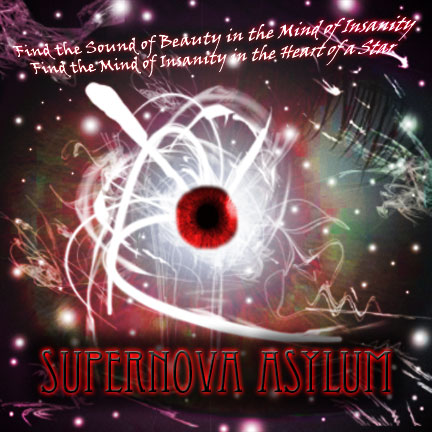.jpg)



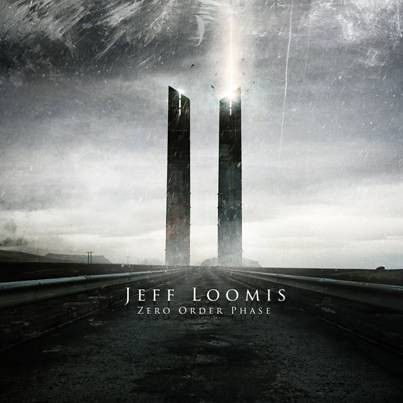






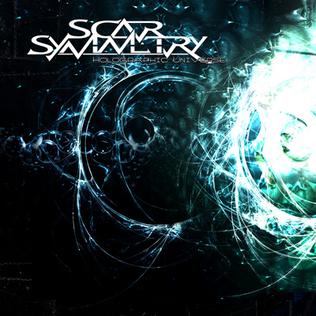
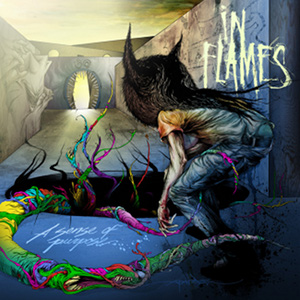
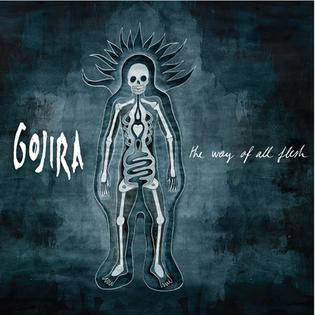

EYE.jpg)